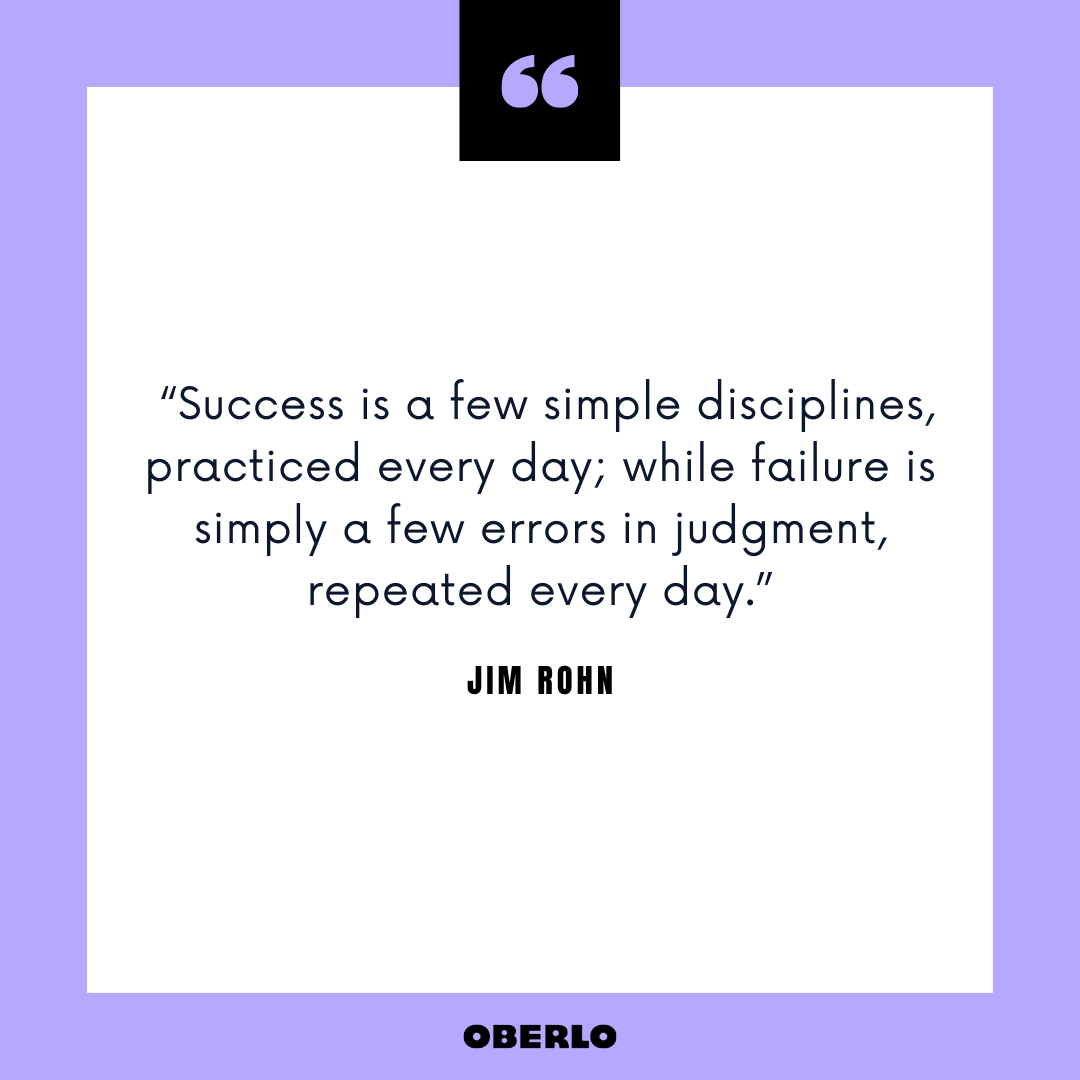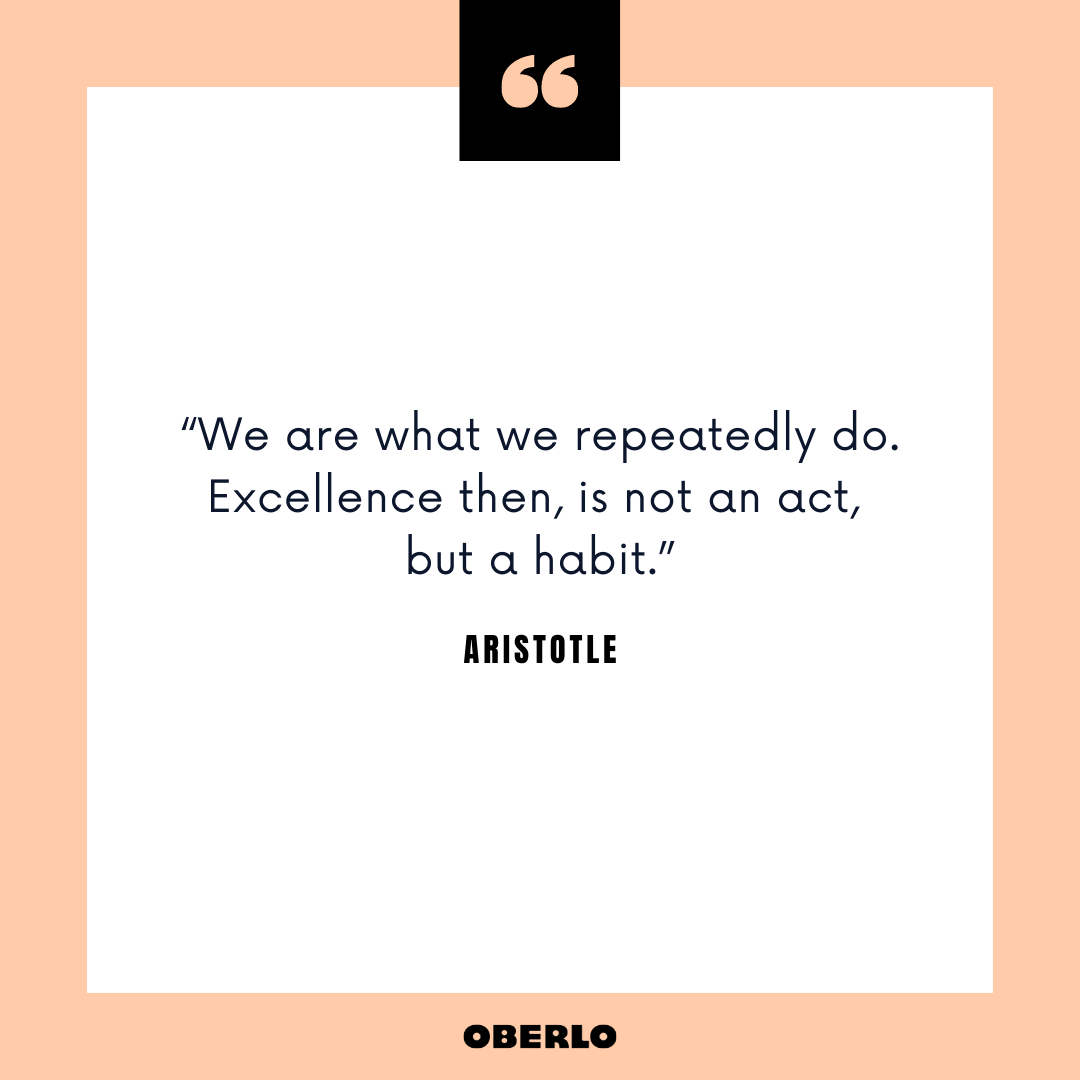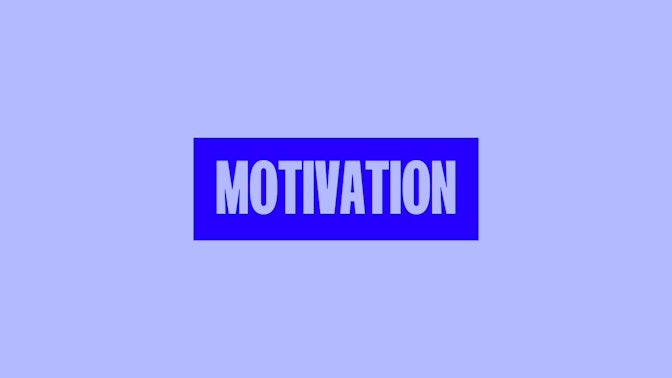I spent years trying to develop a morning routine for success.
Along the way, I tried everything.
I tried to do too much and was exhausted by the time I started working. I tried to do too little and was never primed for the day properly. No matter how much I tried, I could never stick to an early morning routine. I kept switching morning routines and could never find the “right” one.
It. Sucked.
I kept reading blogs online about how a daily morning routine can make or break you, but I could never seem to crack it. But, I just kept trying and trying…
Until one day, it clicked.
Finally, I discovered the not-so-secret recipe for a productive morning routine. Nowadays, I do the exact same thing in the first hour of every day – in the exact same way. (I also have a one-hour bedtime routine.)
The result? My productivity shot through the roof. Oh, and I’m happier– way happier.
In this article, I’m going to share this not-so-secret recipe to help you learn how to create a morning routine. But first, let’s remind ourselves of the benefits of morning routines.



The Importance of Morning Routines for Success
Why do you need a daily morning routine for success?
What you do in the morning – good or bad – sets the tone for the day. And your habits – good or bad – determine the quality of your life.
→ Click Here to Launch Your Online Business with Shopify
The entrepreneur Jim Rohn once said, “Success is a few simple disciplines, practiced every day; while failure is simply a few errors in judgment, repeated every day.”

If that’s not enough motivation, you’re also the most productive in the morning.
According to the psychologist Ron Friedman, the first three hours of the day are the most precious when it comes to productivity.
“Typically, we have a window of about three hours where we’re really, really focused,” Friedman told Harvard Business Review. “We’re able to have some strong contributions in terms of planning, in terms of thinking, in terms of speaking well.”
What’s more, research has found that the brain is most active and creative immediately after sleep.

Finally, your daily morning routine acts as a lighthouse in a storm. The perfect morning routine will keep you on course regardless of what life situations come your way. An effective morning routine can also help you to stop procrastinating for good.
So, whatever situation you’re in, protect your mornings!
By sticking to an effective morning routine for at least the first hour of your day, you’ll set yourself up for success and live a more balanced, fulfilled life.
How to Start a Morning Routine in 5 Simple Steps
There’s no such thing as a “perfect morning routine for success.” However, there is a productive morning routine that’s best for you.
In my experience, trying to replicate someone else’s daily morning routine is a recipe for disaster – after all, we’re all different.
So, if you want to learn how to create a morning routine that’s perfect for you, try following these five simple steps.
1. Find Your “Why”
At first, sticking to a daily morning routine is tough.
So, you need to know why you’re doing it. The author and speaker Simon Sinek said, “Working hard for something we do not care about is called stress, working hard for something we love is called passion.”

If you don’t know why you’re working hard to develop a morning routine, it’s like you’ll get stressed, burn out, and quit. However, if you’re passionate about why you’re getting up at 5 am every morning, everything is suddenly much easier.
So, why do you want to stick to a daily morning routine?
First, define what you hope to get from a productive morning routine. For example, perhaps you want to earn more money, feel empowered, start a side hustle, write a book, get fit, eat healthier, or learn a new skill. Or perhaps you want to improve your mood, concentration, or sense of well being.
Then, ask yourself why you want these things.
Maybe you want to earn more money so you can travel to Thailand, buy a nicer house for your family, or retire early?
Whatever it is, you need to have some good reasons to get up at 5 am.
Make sure to define your “why” clearly. Then, create ways to remind you of your reasons. Put notes everywhere, set reminders on your phone, recite a mantra – drill it in.
Your “why” is what will keep you going when times get tough – and they will get tough before they get easier.
2. Start Small
When developing new habits, it’s always best to take small, consistent steps over time.
James Clear, the author of Atomic Habits, wrote, “Changes that seem small and unimportant at first will compound into remarkable results if you’re willing to stick with them for years.”

For example, I set out to floss my teeth twice a day. Thankfully, I had failed to create new habits enough times to know that small daily wins are the best way to create change. So, I didn’t start flossing twice a day or even once a day.
I started with one tooth, once a day.
After one week, I started flossing two teeth a day. After six months or so, I was flossing all of my teeth twice a day. I’ve kept up this habit for years now, and my dentist is always impressed with my oral health.
So, when creating an early morning routine, make it so easy that you never miss a day.
For example, if you usually wake up at 8.00 am, don’t set your alarm for 5.00 am – likely, you won’t make it more than a few days. Instead, set your alarm for 7.30 am. Then, once you’re consistent, move to 7.00 am and so on.

Don’t shock your system. Change gradually, but consistently.
Try to find one or two things to start with – three max. And start small. For instance:
- Want to have a healthy diet? Start with a glass of lemon water when you wake up.
- Want to be more organized? Begin by making your bed before you leave the room.
- Want to get super fit? Start with five pushups before you get in the shower each morning.
After a week of consistent wins, increase the challenge a little bit – just a little bit.
3. Commit to Consistency
Listen to the moviestar Dwayne “The Rock” Johnson: “Success isn’t always about greatness. It’s about consistency. Consistent hard work leads to success.”

You may have heard that you need to stick to a new behavior for 21 days in a row before it becomes a new habit.
Unfortunately, this is a myth.
In reality, it takes an average of two months before a new behavior becomes automatic – 66 days in a row to be precise. However, depending on the habit you’re trying to create, it can take anywhere between 18 to 254 days to form.
For example, I spent years trying to add meditation to my early morning routine. I downloaded apps, used guided meditation videos, read books on meditation, practiced different sitting positions – you name it, I’ve tried it.
Nothing worked. After a week or two, I would get frustrated with the lack of results, become inconsistent in my practice, and forget about it for a month before I would try again.
Finally, I managed it.
How? In the end, I didn’t use any apps, tools, or hacks. All I did was sit down, close my eyes, and focus on my breath for 20 minutes a day – for about 250 days in a row.
That wasn’t a typo.
It took me around eight months of daily meditation practice before I felt like the behavior became automatic and I didn’t have to try or force myself to do it anymore.
Bottom line, if you want to create a productive morning routine that can change your life, you need to be in it for the long-haul.
Nothing will work unless you’re consistent.
As the classical greek philosopher Aristotle once said, “We are what we repeatedly do. Excellence then, is not an act, but a habit.”
So, commit.

4. Plan Ahead
Reading this post may make you feel motivated to start a productive morning routine, but will you still be motivated in three days’ time at 6 am?
If you’re like most people, probably not.
You’re not always going to be in the most motivated frame of mind. So, plan ahead.
Make it easy for yourself by removing distractions and setting up cues. There are plenty of things that you can do to help you stick to your daily morning routine. Here are some examples of tactics that worked for me:
- Turn your phone off and don’t keep it in the bedroom. If the first thing you do is pick up your phone, you can get distracted by social media, email, videos, and more. This is the quickest way to derail a productive morning routine completely. Get an old-school alarm clock instead. (I use an $8 digital watch.)
- Put your workout clothes on the floor by your bed – including your shoes. This way, you’ll stand on them when you get up and be reminded to put them on immediately. This tactic helped me make running part of my early morning routine.
- Account for “buffer” time. If you have one hour to create a morning routine, it’d be tough to do 20 minutes of yoga, 20 minutes of meditation, and 20 minutes of reading. You need time for bathroom breaks, to make a drink, and take things slow. As you improve yourself, you may be able to go from task to task more efficiently, but for now, keep it easy. Make sure there are at least 5-to-10 minutes between each behavior. (We’ll look at an example in the next section.)
In short, make it as easy as possible to stick to your daily morning routine.
5. Create Balance
What is a good morning routine exactly, and how can you build a balanced and effective one?
To get started, it can help to choose one behavior from each of the four main areas of self-improvement:
- Mental: Read, listen to a podcast, plan your day, etc.
- Emotional: Practice gratitude, connect with loved ones, etc.
- Physical: Exercise, do yoga, drink and eat healthily, etc.
- Spiritual: Meditate, pray, spend time in nature, etc.
Here’s an example to help illustrate a balanced early morning routine:
- 6.00 am: Wake up and write down three things you’re grateful for (Emotional)
- 6.10 am: 15-minute meditation (Spiritual)
- 6.30 am: 15-minute home workout (Physical)
- 6.50 am: Shower and change
- 7.00 am: Have a healthy breakfast with your partner, pet, or housemate (Physical and emotional)
- 7.30 am: Listen to an audiobook on the way to work/school (Mental)
(Notice the buffer time built in?)
Creating a morning routine for success doesn’t need to be complicated. Keep it simple and balanced by choosing one small thing for each area of self-improvement.

Summary: How to Create a Morning Routine for Success
Starting a productive morning routine isn’t a walk in the park. However, the rewards are well worth the effort and discomfort.
If you want to learn how to start a morning routine that lasts, here are five morning routine tips to follow:
- Find your “why” – when things get tough, you need to have a good reason to keep going.
- Start small and build slowly – don’t aim for perfection. Aim for realistic and achievable.
- Commit to consistency – nothing will work without consistency over the long-haul.
- Plan ahead – find ways to make it easier by removing distractions and setting up cues.
- Create balance – design a good morning routine by including behaviors from all four areas of self-improvement: mental, physical, emotional, and spiritual.
Finally, test different routines – but test slowly.
Only make one change to your daily morning routine at a time, and stick to any new change for at least one week. By doing this, you’ll be able to tell what difference the change has made.
What is your morning routine? Share yours in the comments below!






